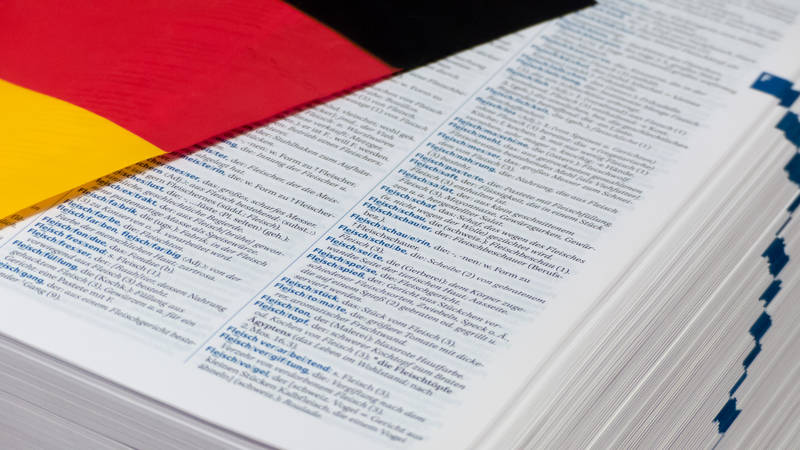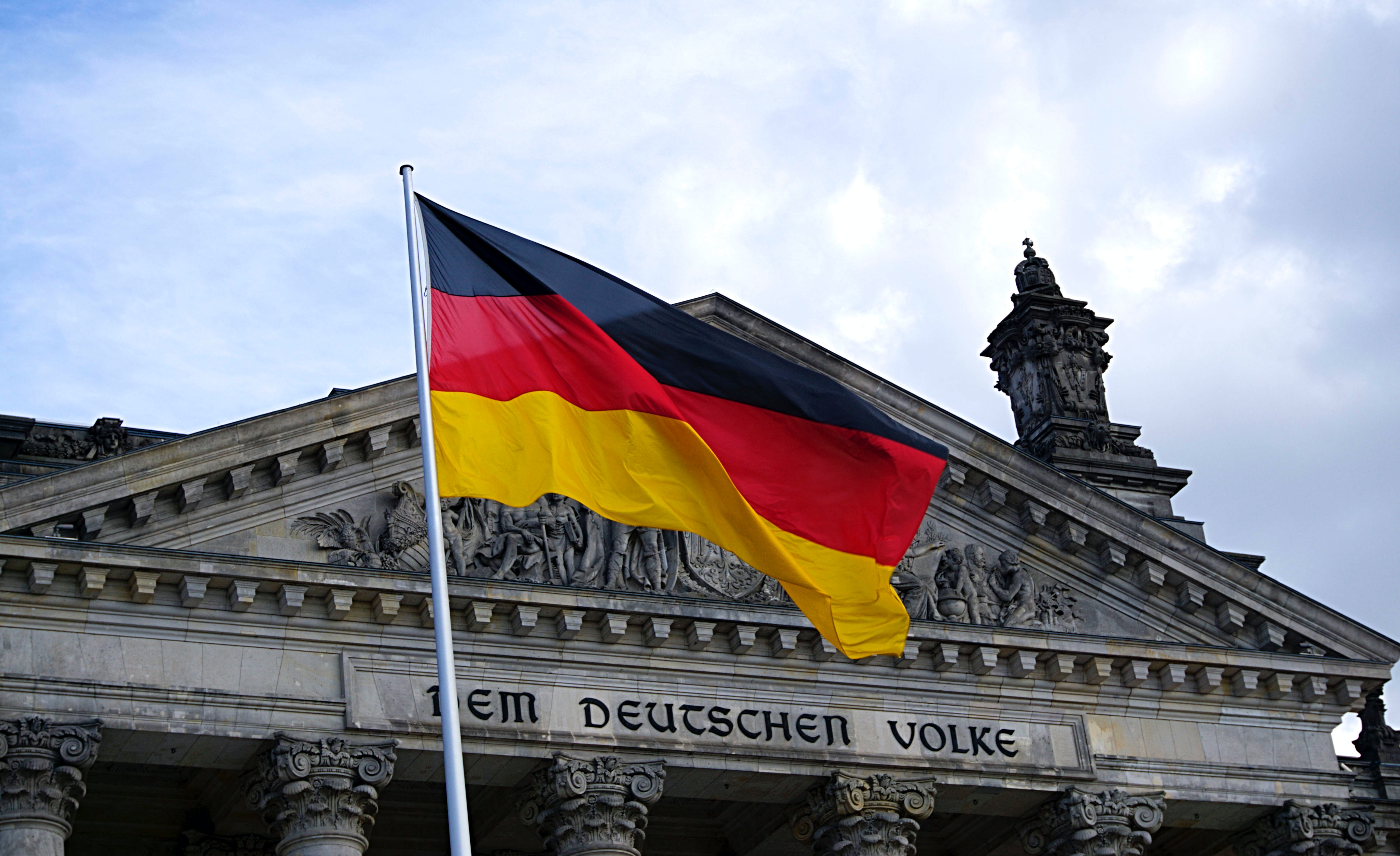A definitive number of words in a language is extremely hard to pin down for two main reasons. First off, a language is not a stagnant, established entity. Secondly, deciding which “words” should be included in a count is a rabbit hole in itself. The closer you look at the problem, the more complex the issue becomes.
Languages are evolving every day, with new words being created and adopted by different communities of speakers regularly. Before the early 2000s, if you suggested that someone “google” something, you would have been met with a blank stare. Now, most people across the globe and across many languages would understand this command (and be able to follow it within minutes, as long as they have service!). New words are constantly fighting for a place in the long-term lexicon (vocabulary) of a language, and whether or not they catch on and become popular enough seals their fate.

How good is your German?
Take our placement test and start learnig at your level!
Where do all of these new words come from?
A large portion of new words across languages come from technology, often loaned (called “loan words”) from the English language due to its prominence in the technology field. Like English, German also has some rules for word flexibility, which allow the creation of new types of words which are immediately understood by other German speakers on the fly.
For example, in English you can use the “nominalization” (noun-ifiying) process to create a noun from a verb or adjective. An example of this is the word “carelessness” from the adjective “careless.” However, a new noun like “swole-ness” could be created by an English speaker from one of Merriam Webster’s newly added words, “swole” (meaning muscular, related to “swollen”). Anyone who knows the new slang “swole” would understand the word’s meaning immediately. Another example of a similar process is the explanation word I used above to describe nominalization itself: “noun-ifying!”
In German, creating compound words for specific situations is even more commonplace than in English. In English, you can get away with combining a few words which have likely never been uttered together to describe some novel occurrence (like “leaf-licker” for, perhaps, a child that can’t stop licking leaves). But it would start to become grammatically cumbersome to get much longer than that (“green-leaf-licker” already seems strange). Due to the combinatorial allowance of German grammar, combining more than two words, like the 39-letter Rechtsschutzversicherungsgesellschaften which translates to “legal protection insurance companies,” is not only common, but would be judged as the most correct option by most German speakers.
Which “words” count as words?
As you might be now realizing, the question of how many words exist in the German language becomes nonsensical if you consider these compound words as individual items to be tallied up, because the list is practically infinite.
Another question that keeps German word-tallyers (another new compound noun!) up at night is whether or not each version of a conjugated verb should be considered an individual word (like inflected forms “play/plays/played” or “spiele/spielst/spielt/spielte” in German), or if only the base infinitive form should count. The same issue arises for any words containing a prefix (like “pre-” in “pre-Google search engines”) or suffix (like “-s” to create many plural nouns (“birds”)).
The question of whether or not to include foreign words, such as déjà vu in English or das Baby in German (rather than the strictly German Säugling) in the word count is also a matter of personal preference. The adoption (and sometimes modification based on grammatical rules) of English words is called “Denglisch” (from Deutsch + Englisch), and while it may annoy some German language purists, it is an established phenomenon that can increase the word count significantly. Word counters also need to definitively decide whether or not to include field-specific jargon like species or medical terms. For example, should a target German word list for German students include words such as Myokardinfarkt (“myocardial infarction”) or just the more common Herzinfarkt (“heart attack”)?
So, depending on which categories of words someone deems necessary to include, or whether you’re aiming for an accurate or impressive number, the resulting word count can differ widely. When looking at divergent total word counts in a language, it’s important to be aware of what choices were made by the “word-tallyer” so that you understand how they arrived at that number. That being said, the best option to get a ballpark figure is usually to look at a respectable dictionary.

A few counts
German dictionaries do not include compound nouns in their word counts, as it would lead to a practically infinite, and therefore not very informative, number. Excluding compound nouns, the Deutsches Wörterbuch counts 330,000 words in usage since the 15th century. German linguist Wolfgang Klein attempted to answer this question and found that there were 5,328,000 lexical units in the German language between 1994 and 2004. The online dictionary Leo, which is less likely to be carefully editorialized and controlled, lists 801,277 entries. The most prominent German dictionary is called the Duden, which publishes multiple volumes to address various aspects of the German language:
Die deutsche Rechtschreibung – The Spelling Dictionary
Das Stilwörterbuch – The Dictionary of Style
Das Bildwörterbuch – The Pictorial Dictionary
Die Grammatik – The Grammar
Das Fremdwörterbuch – The Dictionary of Foreign Words
Das Aussprachewörterbuch – The Pronouncing Dictionary
Das Herkunftswörterbuch – The Etymological Dictionary
Das Synonymwörterbuch – The Thesaurus
Richtiges und gutes Deutsch – Correct and Good German (Guide to Usage)
Das Bedeutungswörterbuch – The Dictionary (Definitions)
Redewendungen – Figures of Speech
Zitate und Aussprüche – Quotations and Sayings
The 27th edition of the standard Spelling Dictionary, published in 2017, included 145,000 keywords and 500,000 explanations of meaning, with information on word separation, pronunciation, grammar, etymology, and style. Duden reports that its main method for finding new words to add is by using software to comb the internet for new words used a significant amount of times over a long enough period. Editors of Duden also must also look at words that have decreased in usage and mark these as “obsolete,” in order to keep the dictionary entries relevant and current.
If you’re interested in contrasting that with a few counts from the English language, check out these counts, which differ in permissiveness of word-type inclusion and dialect (American versus British) (from Wikipedia’s list):
Webster’s Third New International Dictionary: 470,000
The American Heritage Dictionary of the English Language: 350,000
Oxford English Dictionary: 171,476

Learn German with Lingvist!
How many words do you need to learn to be fluent in German?
“Fluency” is another linguistic phenomenon that’s difficult to pin down because it can mean very different things, depending on the context and goals. If you’re learning a language for professional purposes, the register (or style) of German you’ll be targeting is bound to be more formal than the casual German you’d want to learn to communicate with a romantic partner. Therefore, the type and amount of vocabulary you want to focus on will depend on what you plan to do with German.
Though the answer to the above question is highly subjective, it still helps to set goals. Learning 1,000 words in a foreign language will help you piece together the meaning of everyday sentences about where things are, facts about a person such as their age, or exchanging simple pleasantries. Luckily, because English and German are both Germanic languages, your English vocabulary will come in handy when learning German, as there are many cognates, or words with similar roots. Learning 2,000 words will get you closer to being able to figure out written texts, such as websites or news articles.
The algorithm used by Lingvist allows you to memorize words faster than any other language learning technology. Most users learn 2,000 words in about 17 hours of regular practice using the app. In fact, one Lingvist user was able to learn 100 words per day with the help of Lingvist and eventually attend a German university.
Whatever your reason for learning German, it’s interesting to know how many total words you may encounter, and it’s helpful to set goals for how many words you’d like to learn. It’s also important to remember that language is an ever-changing tool for communication, and that no matter the actual number of words you may have stored in your memory, the most important thing is getting comfortable with enough German words to be able to create meaningful sentences and effectively communicate with German speakers.




